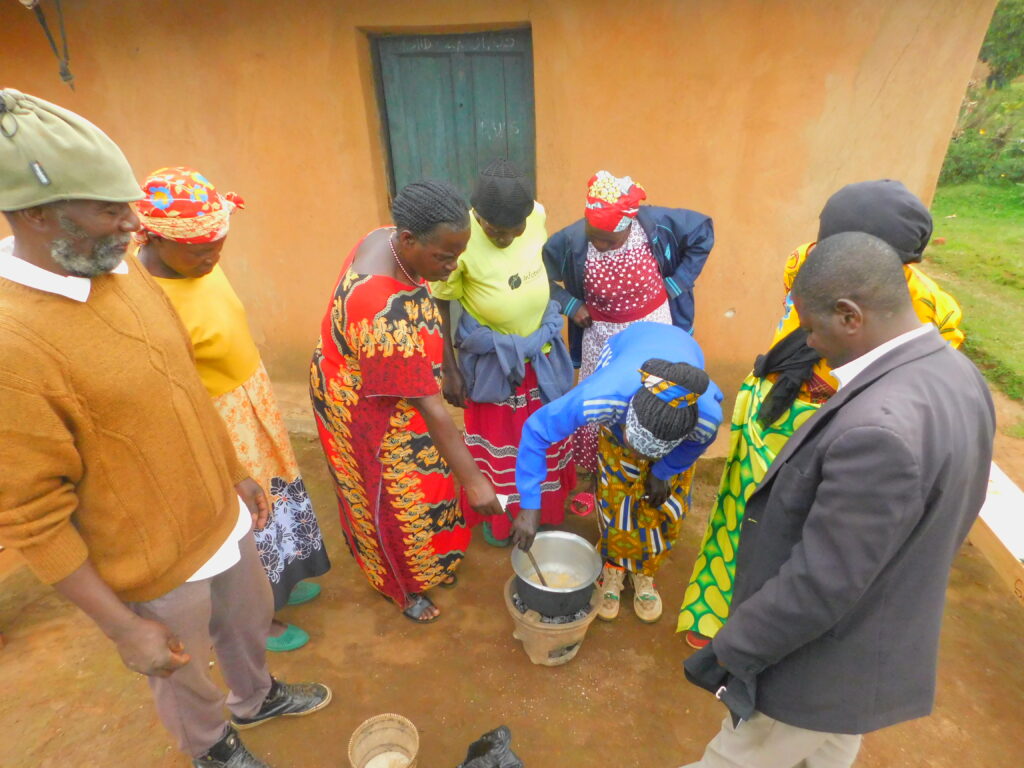
Amaranth, the “Wonder Food”
Sixty-four-year-old great grandma Violet farms her small plot of land on a steeply sloping hill where landslides were a common occurrence. Prior to joining the program, her yields were “miserable” because her soil had lost its fertility. For example, her cabbages and sorghum would hardly form heads, and she harvested few Irish potatoes despite her hard work. One time, she planted 6.5 lbs. of bean seeds on a quarter-acre parcel of land and reaped a very disappointing 17.5 lbs. The hard-packed ground was difficult to work, which caused her general body pains, and her poor nutrition negatively affected her vision.
Violet and her husband signed up with local partner Pentecostal Assemblies of God (PAG) to learn Conservation Agriculture (CA) principles, particularly mulching, because it retains soil moisture, softens the ground, and demands less intense labor overall. They learned integrated pest and disease management, how to select Irish potato seeds for planting and sale, how to grow and eat both grain and vegetable amaranth, and good agronomic practices such as timely planting, correct fertilizer application, plant spacing, and ways to shore up the sloping land.
They embraced these teachings and carried them out with great care. Last summer she planted 6.5 lbs. of beans and harvested 154 lbs.! She also planted a little over a pound of sorghum and harvested 174 lbs. With CA, she started getting bumper harvests to feed her large family and also to sell. She was finally able to save money, and used some of it to buy a cow to provide milk for the children and rich manure that she composts to improve her soil. The vegetable amaranth that she grows in her kitchen garden to supplement her diet has helped to improve her eyesight.
There are medicinal and nutritional benefits to eating both grain amaranth and the leaves of the plant known as “vegetable amaranth” or “Chinese spinach.” Amaranth strengthens the immune system and is especially rich in Vitamin C and zinc. Ninety-eight percent of the 1,000 program farmers have adopted both kinds of amaranth into their farming and dietary practices. The health of the women and children, especially, has improved by eating amaranth.
Uganda Rubanda Program
Led by World Renew and Local Partner Pentecostal Assemblies of God (PAG) Uganda Kigezi-Ankole Pastorate
